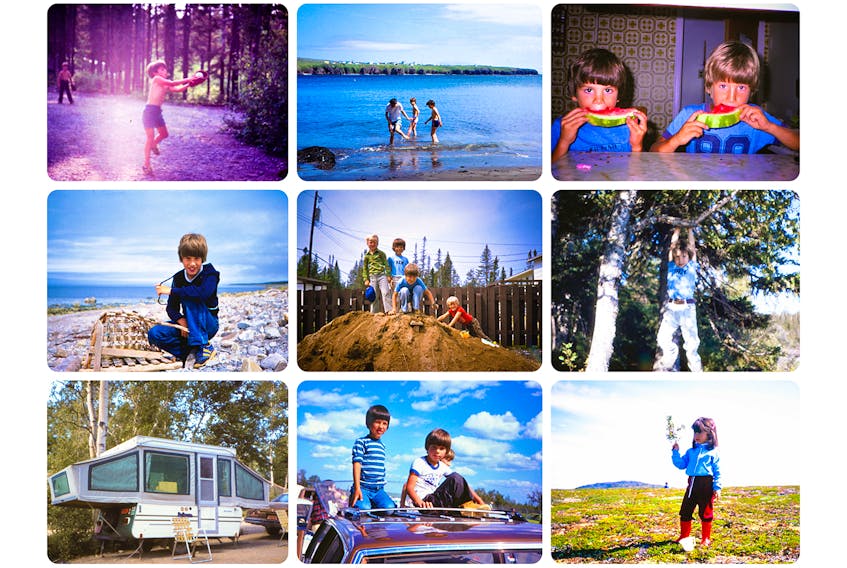The summer air has changed the neighbourhood and the commotion of kids playing has taken over the streets. That bustle has dampened over the years, however, and we need to fix it.
I grew up on a small street in a new subdivision in a relatively busy community. My hometown was once defined as the suburbs to a city that didn’t exist – an apt descriptor. My summers were shared between that town and the fishing community (with a sprinkle of tourism) my father hailed from. It is quaint there, sure, but teeming with activity for youth of the ’70s and ’80s.
Summer was a time for kids – it was our season. And it was glorious.
We spent our days outdoors, from the early mornings sneaking out in our pyjamas to catch the early golden glow of the sun to the cooler night air when a lone flashlight was the coveted conch of the neighbourhood.
Our street turned into a sports arena of choice most days. Our bats pounded tennis balls off the fronts of houses as we did our best impersonations of major leaguers Gary Carter and Tony Fernandez. We slid into bases made of rock that were laid upon asphalt. We scuffed the legs of our Sunday best.
When things got serious in the field of play and we joined forces to compete against another neighbourhood, we headed to the nearest green belt and played on grass. Ankles were rolled on bumpy earth. Hitting one over the big rock in centre field was an acknowledged home run.
On a whim, our street was often turned into a hockey rink, the curbs doubling for boards and those big rocks that were bases became goal posts. The girls and boys (because “player” had no gender) on our street sometimes body-checked or were tripped, and got hurt – and got back up again. That narrow road became a football field, a soccer pitch or a basketball court without the luxury of baskets.
It was not only sports, as our street was home to games of all shapes, sizes and rules. We played with skipping ropes and we played relay games based on limited knowledge of the two television stations we had.
We swung axes and built forts and hideouts. We knew the forests around the railway tracks intimately.
We revelled in the fun we had when an errant piece of drywall fell into our laps as we chalked out lines for hopscotch and World War. When those white lines were washed away, we drew them all over again.
When the sun dipped below the horizon, we brought out our repertoire of after-dark activity. There was a Knock, Knock Ginger, the delight of every parent disrupted from late-night TV, and Bardown, a game so-named because we thought ourselves too cool to play hide-and-seek.
Let them come home dirty, with pants ripped open because they played so hard. Let them figure out how they themselves will summit social obstacles, and how they will reach their peak in doing so.
We knew the schedules of moms' voices calling from each front step because. They knew we were close by even if we weren't in sight.
The abundance of fun was met with tense times too, of course. When teenagers – the equivalent of hellish visitors from another planet – walked our neighbourhood, we parted the road and lined the curb like a gauntlet. When one of us dared to speak, we knew our entire existence became at risk. Thankfully, those aliens were a kind lot, and we lived to tell about it.
There was also the fighting among ourselves. We ofttimes came to blows, and our days ended in tears, as we dipped our heads and skulked our way home. These disputes hurt our hearts more often than any bruising or abrasions. The next day, they were forgotten, and the healing power of the neighbourhood ensured instant acceptance for the aggressor and victim all over again.
We communicated as a microcosm of society without knowing what any of those words meant. We were inspired by each other, our parents and those who led us, through strong example.
We functioned as a whole and we knew right from wrong, even when we veered toward the latter.
I’ve been wondering these past few weeks if these days are gone? Youth are different now, right?
They have different interests, they live by screen time and play dates. They rely solely on the guidance of adults, who feed them a prescribed diet of what to think and how to act. They are lazy, they are awarded medals for just participating, they can’t cope and they need to be led.
And the more I think about this, the more I realize how wrong I am. Kids are kids, and they will continue to be that way as long as we let them.
Now, on the footstep of their greatest season, is the time to let them be.
Let them come home dirty, with pants ripped open because they played so hard. Let them figure out how they themselves will summit social obstacles, and how they will reach their peak in doing so.
Let’s send them out the door with no plan in sight, only a directive to have fun.
Let’s reduce the screen time, instant-messenging and video-game reliance.
If nothing else, let’s ensure they are filled with the taste of the summer air, and the magic it brings.
Troy Turner is managing editor of The Western Star








